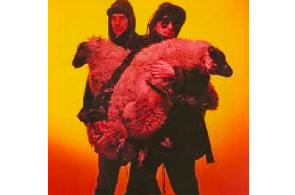KLF = Kopyright Liberation Foundation and their entire career has been based on nicking other people’s stuff..not that we have a problem with that, that was their art and dare we suggest it their genius in the days where recording songs onto a blank cassette made record execs very very very angry!
But we did have to giggle when we read this in the Guardian
It transpires the KLF’s music publisher has spent a year trying to block the release of an unauthorised documentary about the group on the basis that the film-makers do not have a licence to use the KLF’s songs.
“The irony is they used very big uncleared samples in all their early tracks,” said Chris Atkins, the Who Killed the KLF? director.
His film covers the duo’s creation of No 1 singles in the late 1980s and early 90s, their decision to exit the music industry and burn a million pounds, and their move into the art world with the K Foundation.
Atkins and his production team insist they can use chunks of KLF tracks such as 3am Eternal and What Time Is Love? without the express approval of the band. This is because there is a defence in copyright laws for the use of work without payment or permission if it is being used for the purpose of criticism. Unusually, Atkins says his film meets this threshold because he is using archive audio recordings of Drummond and Cauty critiquing their own work.
Representatives of the KLF – a name which, among other suggestions, has been speculated to stand for the Kopyright Liberation Front – strongly disagree with this interpretation of the law.
The Guardian has learned that lawyers on behalf of Drummond and the KLF told the film-makers they took any infringement “extremely seriously”. They said they were willing to “take any and all measures” to protect such rights – and “reserve the right to commence legal proceedings”.
A spokesperson for the KLF’s music publishers, Warner Chappell, explained why they had attempted to block the documentary’s premiere at a Texas film festival last month. “We always champion the value of our songwriters’ music,” they said. “Feature-length documentaries made for profit which make extensive use of an artist’s music are not covered by the fair dealing exception to copyright law, which is why we took action in this case.”




